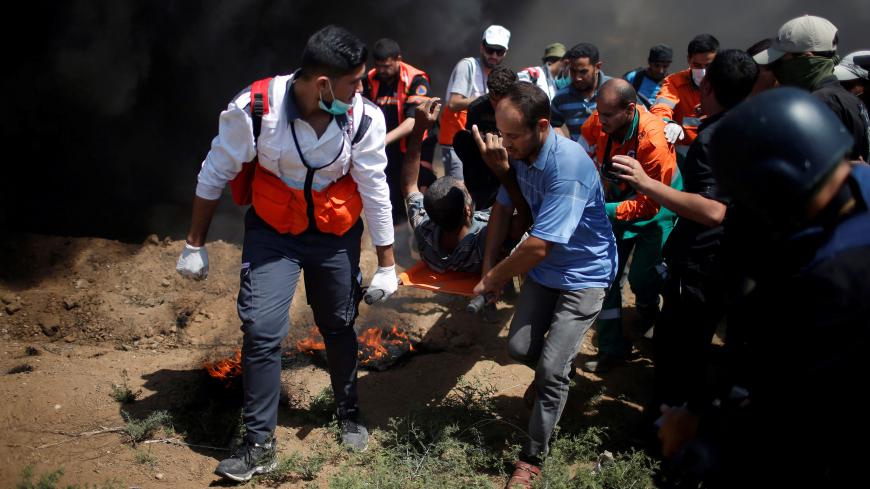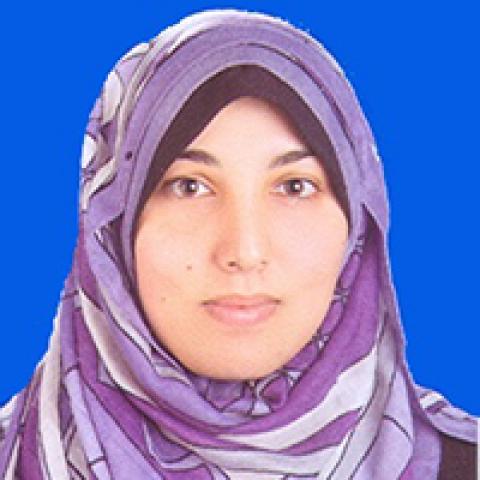GAZA CITY, Gaza Strip — Spokesman for Gaza’s Ministry of Health Ashraf al-Qudra announced June 3 that Mohamed Hamadeh had died from the wounds he suffered during the Great Return March. While Hamadeh died a few days following his injury, many of the wounded drew their last breath before or shortly following their arrival at a hospital. According to Qudra, as of June 3, 123 people had been killed during the protests at the Israeli-Gaza border, including a number of injured persons who later died given their critical conditions, the EMTs’ inability to treat them, and shortages of medication, equipment, surgical supplies and beds at the hospitals run by the Ministry of Health. The death toll for May 14, the day the events reached a peak, was 60, according to Marwan Abu Saada, the head of surgery at Shifa Hospital.
Faten Najjar, Hamadeh’s wife, told Al-Monitor, “He was shot twice in the legs May 14. … The doctors said the unavailability of suture equipment used in vascular surgeries made the surgery an impossible task despite his critical condition. Ultimately the surgical procedure was only performed when Doctors Without Borders provided the suture kit. Surprisingly his foot started bleeding June 2. As the vascular surgeon was not present, nurses there tried to stop the bleeding. My husband received 14 units of blood and was taken to the operating room upon the doctor’s arrival, yet he did not make it and died a few hours later. The doctors said that heavy bleeding from the operated leg caused his death.”



